There was a knowing tone as Tam Courts referenced ‘the energy online’ during his first interview as Dundee United manager.
It remains one of the most outrageously euphemistic comments ever committed to film.
‘Backlash’, ‘fury’ or, at best, ‘scepticism’ would have been more accurate. All specialties of Twitter and Facebook.
Of course, the angriest shout the loudest. There were other voices heralding a brave, young appointment; a break from the merry-go-round of familiar faces.
Regardless, it was a blockbuster beginning to United’s second season back in the Premiership. It was the start of a journey that would ultimately take them back to Europe.
From an absence of flair to an abundance of flares, it has never been short of talking points — on or off the pitch.
And Courier Sport has been there every step of the way.
This is the story of United’s season.
The Court(s) of public opinion
Courts’ appointment was no surprise.
Even prior to Micky Mellon’s departure, there were rumours of his impending ascension.
Courts’ work with the United academy was highly-regarded and the former Kelty Hearts boss was seen as the guy.
However, that sense of inevitability did little to dampen the rancour, with the club’s announcement met with an avalanche of ire.
Sporting director Tony Asghar found himself in the crosshairs.
Crucially, Courts was joined at the eye of the storm by Liam Fox, who turned down Hibs to become No.2 at Tannadice.
Rampant against Rangers
Forty matches without defeat in the Premiership.
That was the record Rangers were defending when they arrived at Tannadice on August 7.
But Steven Gerrard, with his perennial fondness for calling United ‘Dundee’, was given cause to remember the name when Jamie Robson slammed home the winner.
Splitting sunshine, a raucous crowd (albeit still limited to 4,600) and a statement victory. After the misery of Covid football, this was the good stuff.
🎙️"Dundee United out of nowhere! A big question has been asked of Rangers!"
Here's a look at Jamie Robson's first goal since 2017 that has given @dundeeunitedfc the lead at Tannadice against Rangers. How will this one end up?
📺Watch the game live on Sky Sports Football now pic.twitter.com/jVkEntnf5f
— Sky Sports Scotland (@ScotlandSky) August 7, 2021
Following a meek defeat against Aberdeen the prior week, it was also vital for Courts.
Did it silence every doubter? Of course not.
However, even the most ardent sceptics accepted that one doesn’t simply fluke a victory against the reigning champions of Scotland.
There was another stirring win against Dundee, with Ian Harkes rattling home a dramatic late strike. Then a hard-fought draw at Celtic Park. Momentum building.
Following a 2-1 triumph against Motherwell on October 23, United were third in the Premiership, only behind league leaders Hearts on goal difference.
A Premier Sports Cup exit at the hands of Hibs — a game in which United were vastly superior for long spells — topped a fairly short list of negatives from Courts’ first four months at the helm.
A Belgian adventure for Lawrence Shankland
Those early endeavours played out against a backdrop of upheaval.
Charlie Mulgrew was an early arrival; a pivotal one. His experience, quality and the immediate legitimacy his support afforded Courts was a defining — and perhaps under-appreciated — factor in the Terrors’ success.
Dylan Levitt would prove to be an inspired capture. Ilmari Niskanen, Scott McMann, Trevor Carson and Marc McNulty also arrived, with Max Biamou and Matthew Cudjoe signing on following the closure of the summer window.
Kerr Smith (Aston Villa) and Jamie Robson (Lincoln City) went the other way, while the most notable exit was that of Lawrence Shankland. The Scotland striker joined Beerschot for a fee in the region of £1 million.
We’ll never know whether United would have been a more potent attacking unit with Shankland.
Was the offensive logjam more to do with a lack of service than the lack of a fully firing No.9?
That debate can rage.
A winter of discontent
Cold reality bit during the winter months, characterised by a run of eight defeats in 10 fixtures. United scored just six goals in that period.
Jeando Fuchs’ form plummeted ahead of ultimately joining Peterborough in January, Levitt — a sensation when fit and sharp — was plagued by maddening knocks. The signing of Biamou was a failure.
And Covid hit. United lost 1-0 against Rangers with a glorified youth team on December 18.
Following Round 25 of Premiership fixtures — which saw United draw 0-0 with St Johnstone, having previously played out a 0-0 stalemate with Dundee — Courts’ men were eighth.
Moreover, they had scored just 19 league goals. Only shot-shy St Johnstone (14) had rippled the net with less frequency. Questions were being asked.
Watt a vital victory
Tony Watt was the marquee arrival in January. The Premiership’s top scorer — as he was at the time — joined from Motherwell after initially agreeing a pre-contract.
His first and, to date, only goal came in a 2-0 triumph over the Steelmen on February 9.
Despite blatantly drawing too many games, United had a happy knack of picking up big results just as the gloom threatened to descend.
A 96th-minute goal by McNulty secured a huge 2-1 win at St Mirren. A 1-0 victory over Motherwell was the cornerstone to sealing Europe, before that 2-1 triumph against Ross County secured fourth on the final day.
⌛️ 𝟗𝟎+𝟔…
𝐓𝐡𝐢𝐬 𝐢𝐬 𝐟𝐨𝐨𝐭𝐛𝐚𝐥𝐥 🧡@SparkyMcNulty | #UnitedTogether pic.twitter.com/WgGKJ0ehCb
— Dundee United FC (@dundeeunitedfc) March 19, 2022
There were bumps in the road.
United should have beaten Dundee, somehow contriving to blow a 2-0 lead to draw at Tannadice in April.
Calum Butcher’s United career looks over, the lesser-spotted Biamou never did get fit, while Ian Harkes, Peter Pawlett and McNulty all missed the run-in due to injuries.
That did allow for 16 academy players to feature for United over the course of the campaign.
However, even more impressive than the cavalcade of fleeting cameos is the sustained impact made by Ross Graham and, latterly, Archie Meekison.
Delirium in Dingwall
United were already assured European football when they travelled north in astonishing numbers for the season finale.
Just shy of 2,300 Arabs descended upon Dingwall armed with beach balls, inflatable palm trees and smoke bombs.
A wall of colour and noise followed for 90 minutes, allied with a couple of giddy pitch invasions.
And when the dust settled and smoke cleared — literally — United were able to toast a successful campaign.
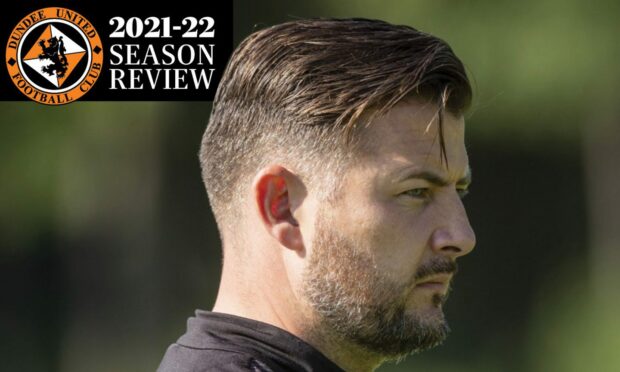
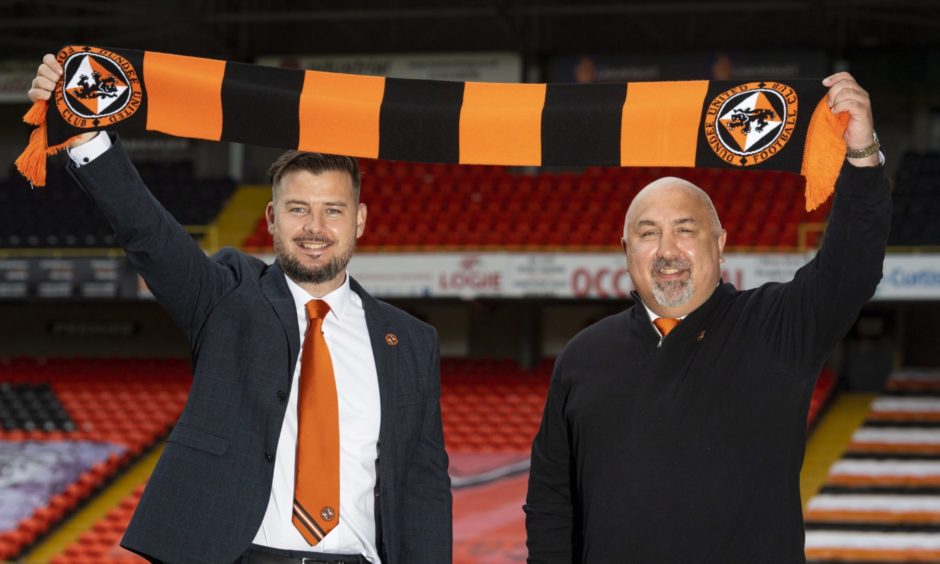
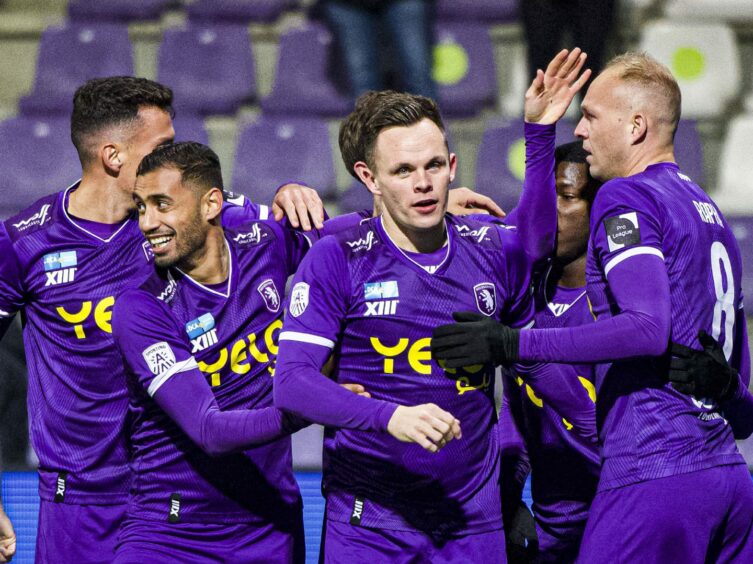
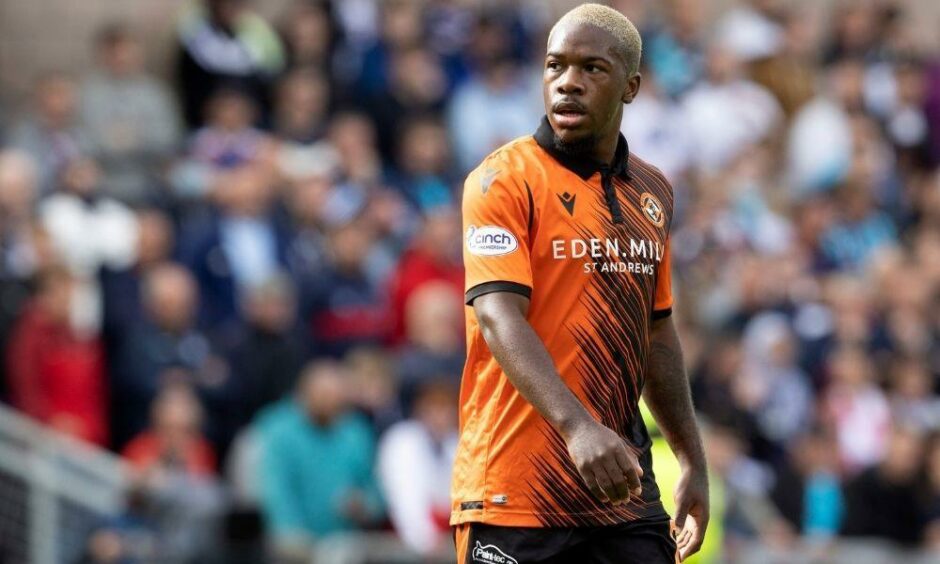
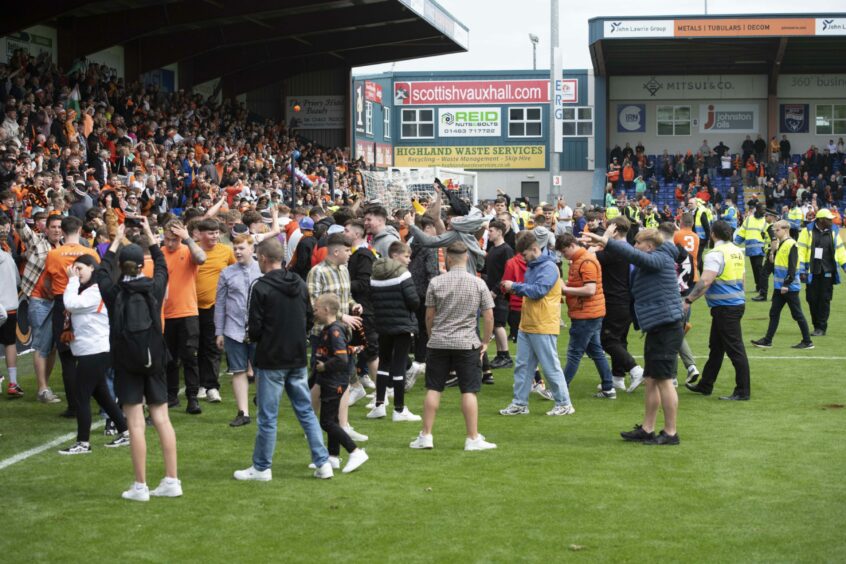
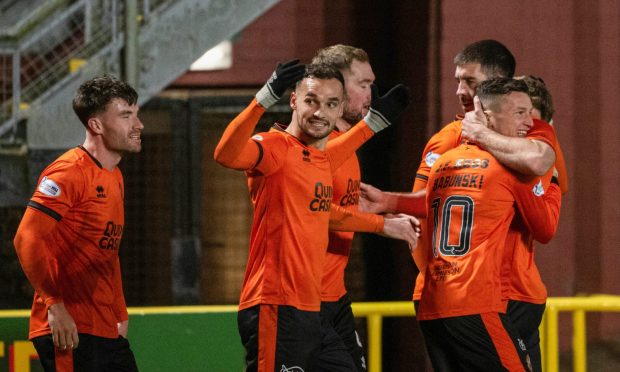

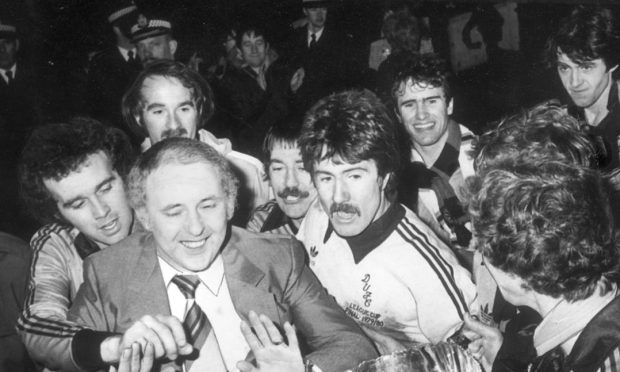

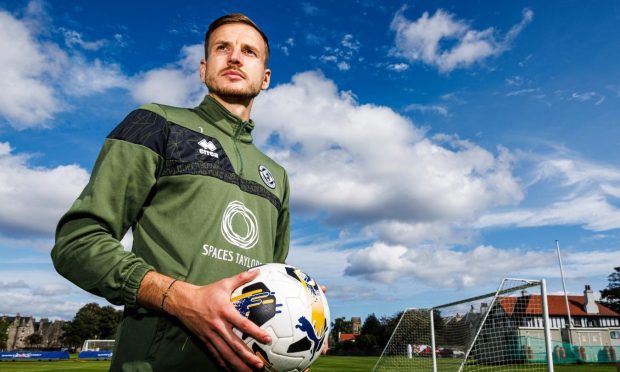
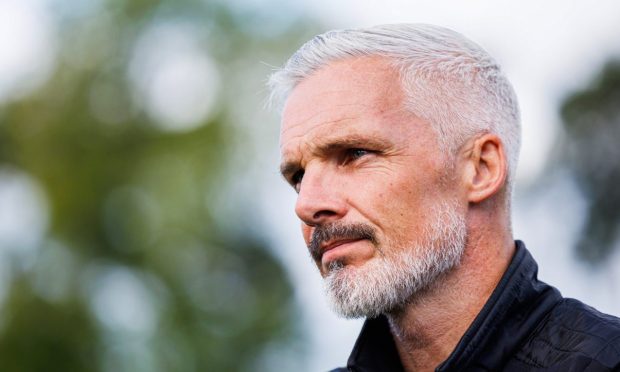




Conversation